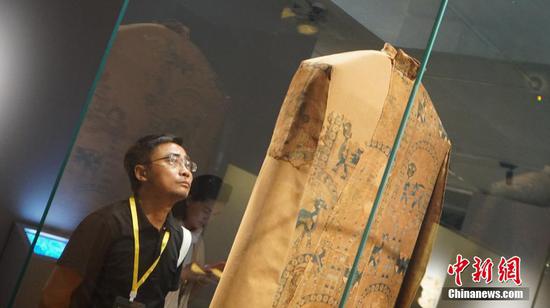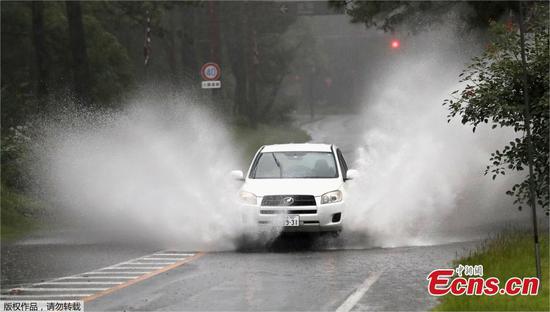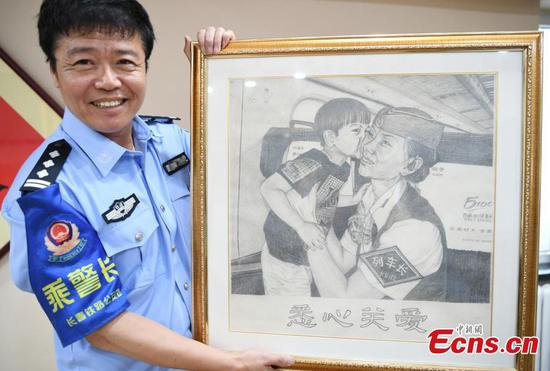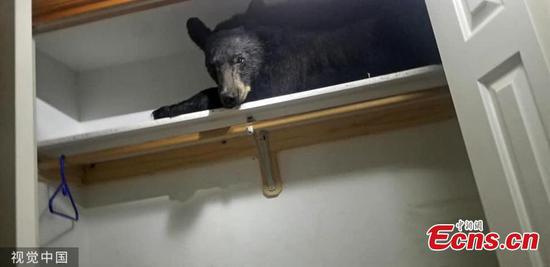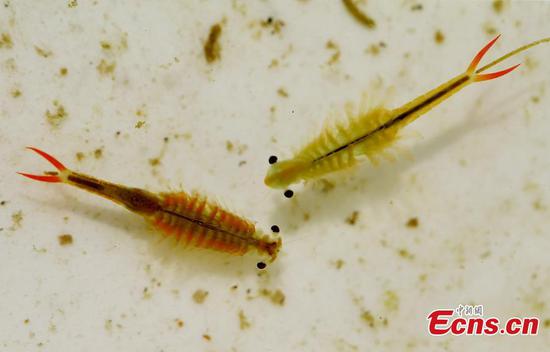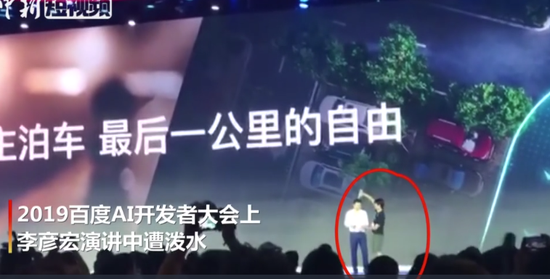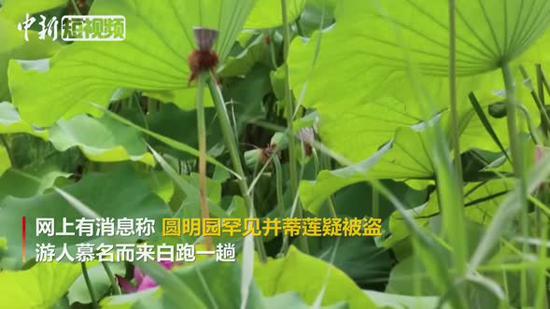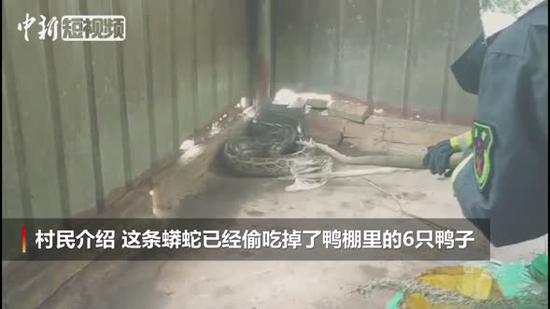
An exhibition of relics related to the ancient artery connecting Xi'an in Shaanxi Province with regions in southwestern and western China during the Tang Dynasty (618-907) is being held at the Ningxia Museum in Yinchuan City, Northwest China's Ningxia Hui Autonomous Region, July 2, 2019. The exhibition showcased nearly 200 relics collected from nine museums in Qinghai, Shaanxi, Gansu, Sichuan, Ningxia, Xinjiang Uygur Autonomous Region and Tibet Autonomous Region. The displays included Buddhist scriptures, pottery figurines, and stone sculptures. (Photo: China News Service/Yu Jing)
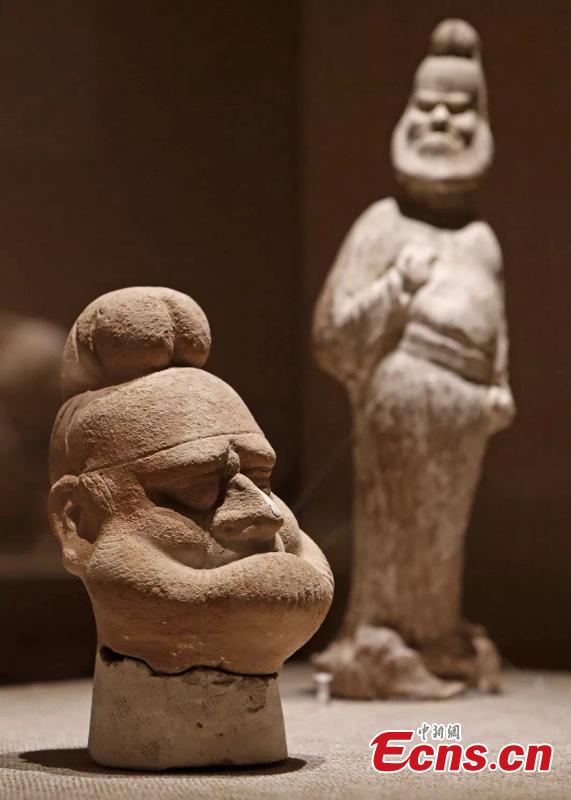
An exhibition of relics related to the ancient artery connecting Xi'an in Shaanxi Province with regions in southwestern and western China during the Tang Dynasty (618-907) is being held at the Ningxia Museum in Yinchuan City, Northwest China's Ningxia Hui Autonomous Region, July 2, 2019. The exhibition showcased nearly 200 relics collected from nine museums in Qinghai, Shaanxi, Gansu, Sichuan, Ningxia, Xinjiang Uygur Autonomous Region and Tibet Autonomous Region. The displays included Buddhist scriptures, pottery figurines, and stone sculptures. (Photo: China News Service/Yu Jing)

An exhibition of relics related to the ancient artery connecting Xi'an in Shaanxi Province with regions in southwestern and western China during the Tang Dynasty (618-907) is being held at the Ningxia Museum in Yinchuan City, Northwest China's Ningxia Hui Autonomous Region, July 2, 2019. The exhibition showcased nearly 200 relics collected from nine museums in Qinghai, Shaanxi, Gansu, Sichuan, Ningxia, Xinjiang Uygur Autonomous Region and Tibet Autonomous Region. The displays included Buddhist scriptures, pottery figurines, and stone sculptures. (Photo: China News Service/Yu Jing)
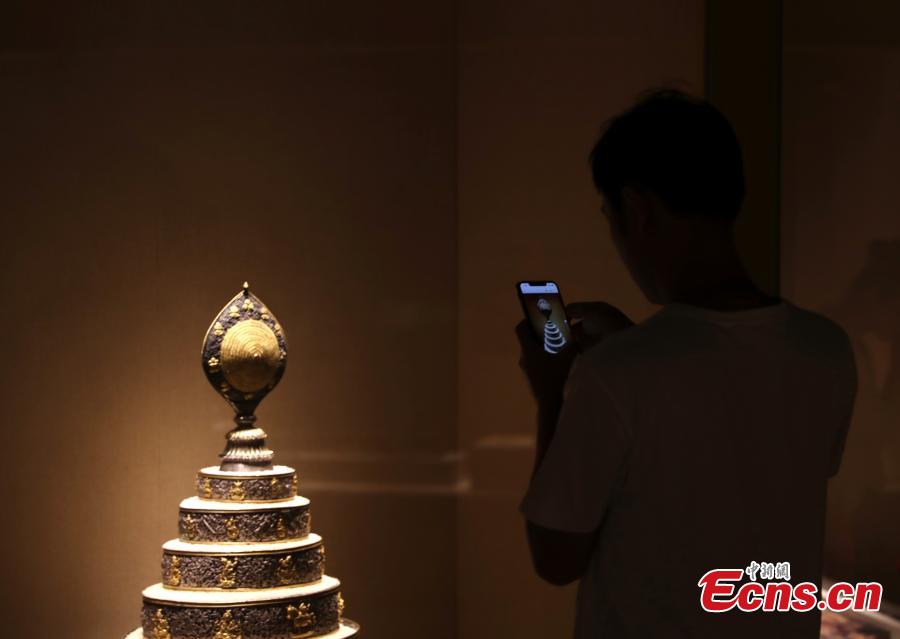
An exhibition of relics related to the ancient artery connecting Xi'an in Shaanxi Province with regions in southwestern and western China during the Tang Dynasty (618-907) is being held at the Ningxia Museum in Yinchuan City, Northwest China's Ningxia Hui Autonomous Region, July 2, 2019. The exhibition showcased nearly 200 relics collected from nine museums in Qinghai, Shaanxi, Gansu, Sichuan, Ningxia, Xinjiang Uygur Autonomous Region and Tibet Autonomous Region. The displays included Buddhist scriptures, pottery figurines, and stone sculptures. (Photo: China News Service/Yu Jing)
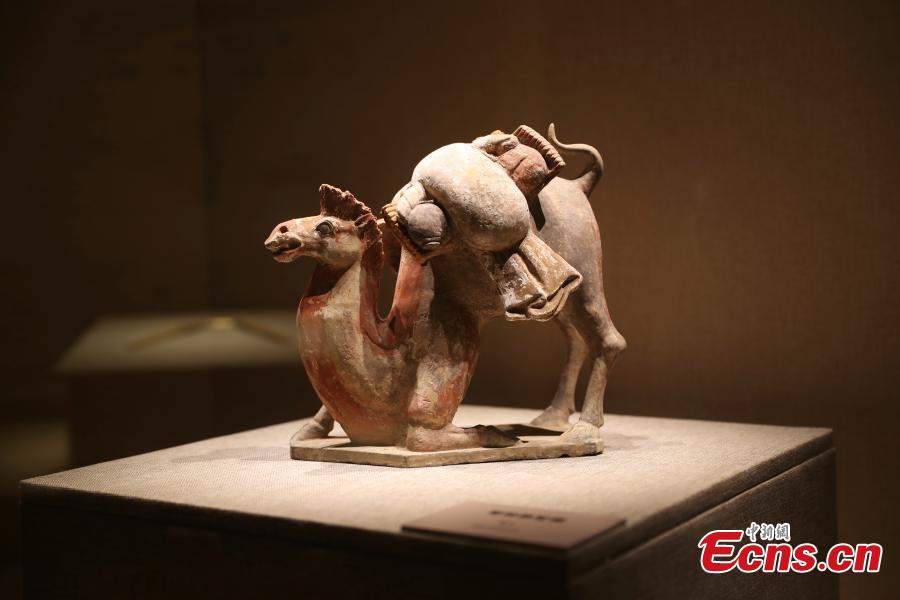
An exhibition of relics related to the ancient artery connecting Xi'an in Shaanxi Province with regions in southwestern and western China during the Tang Dynasty (618-907) is being held at the Ningxia Museum in Yinchuan City, Northwest China's Ningxia Hui Autonomous Region, July 2, 2019. The exhibition showcased nearly 200 relics collected from nine museums in Qinghai, Shaanxi, Gansu, Sichuan, Ningxia, Xinjiang Uygur Autonomous Region and Tibet Autonomous Region. The displays included Buddhist scriptures, pottery figurines, and stone sculptures. (Photo: China News Service/Yu Jing)
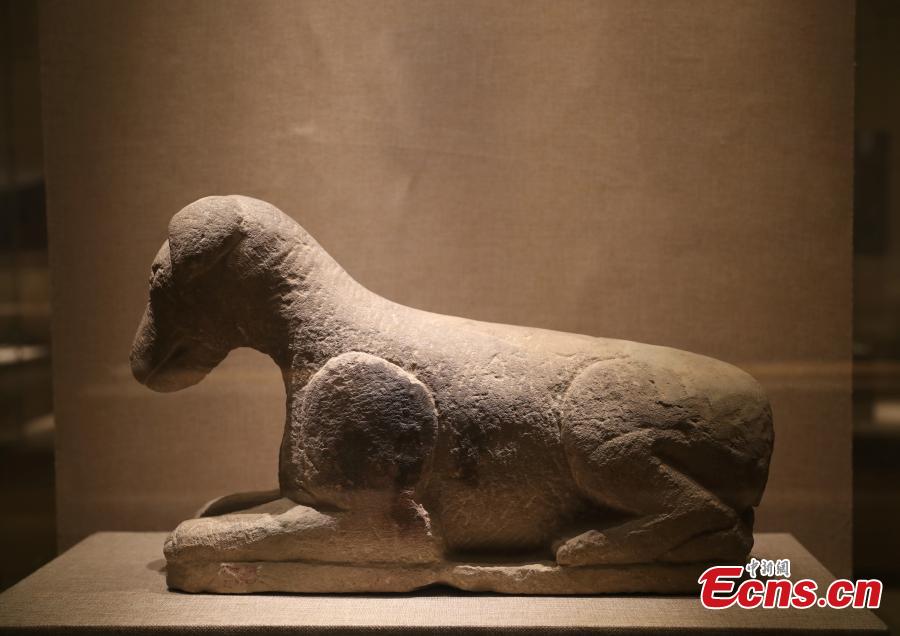
An exhibition of relics related to the ancient artery connecting Xi'an in Shaanxi Province with regions in southwestern and western China during the Tang Dynasty (618-907) is being held at the Ningxia Museum in Yinchuan City, Northwest China's Ningxia Hui Autonomous Region, July 2, 2019. The exhibition showcased nearly 200 relics collected from nine museums in Qinghai, Shaanxi, Gansu, Sichuan, Ningxia, Xinjiang Uygur Autonomous Region and Tibet Autonomous Region. The displays included Buddhist scriptures, pottery figurines, and stone sculptures. (Photo: China News Service/Yu Jing)
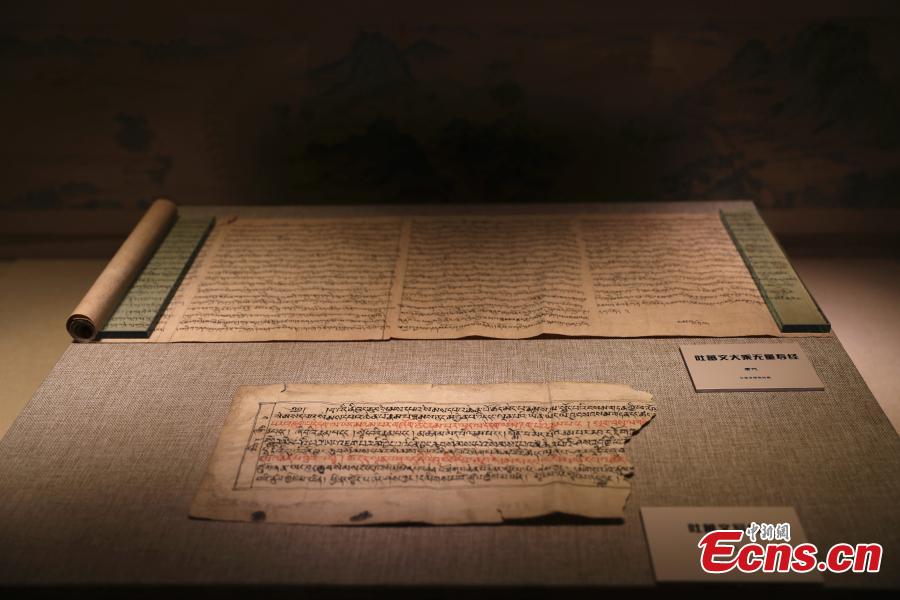
An exhibition of relics related to the ancient artery connecting Xi'an in Shaanxi Province with regions in southwestern and western China during the Tang Dynasty (618-907) is being held at the Ningxia Museum in Yinchuan City, Northwest China's Ningxia Hui Autonomous Region, July 2, 2019. The exhibition showcased nearly 200 relics collected from nine museums in Qinghai, Shaanxi, Gansu, Sichuan, Ningxia, Xinjiang Uygur Autonomous Region and Tibet Autonomous Region. The displays included Buddhist scriptures, pottery figurines, and stone sculptures. (Photo: China News Service/Yu Jing)











